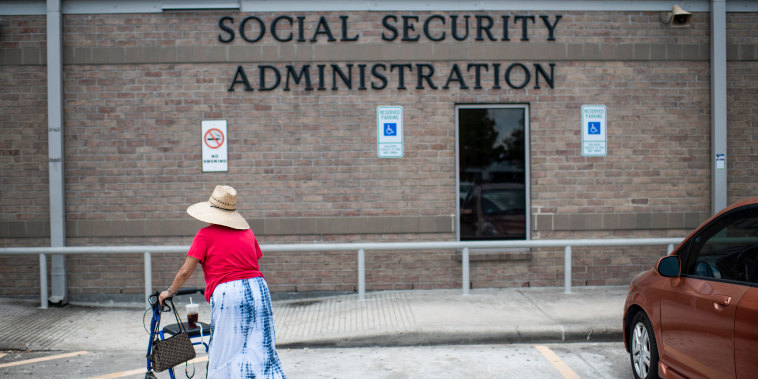The Social Security Administration has issued a final rule that will prevent food assistance from reducing payments to certain beneficiaries.
The change applies to Supplemental Security Income, or SSI, which provides monthly checks to adults and children who are disabled, blind or age 65 and older, and have little or no income or resources.
Approximately 7.4 million Americans receive support either exclusively from SSI or in combination with Social Security.
Under the new rule, which goes into effect Sept. 30, food will no longer count toward calculations for eligibility for benefits, known as In-Kind Support and Maintenance, or ISM.
Currently, support in the form of food, shelter or both may count as unearned income for SSI beneficiaries, and therefore reduce their payments or affect their eligibility for benefits.
The monthly maximum federal SSI amounts in 2024 are $943 for individuals, $1,415 for couples and $472 for essential persons, or those who live with an SSI beneficiary and provide care.
To qualify for SSI, beneficiaries must generally earn less than $1,971 per month from work. They must also have less than $2,000 in resources per individual, or $3,000 per couple.
That generally includes either money or other assets that can be turned into cash, such as bank accounts, bonds, property and stocks.
The new rule means SSI beneficiaries will no longer have to worry that the groceries or meals they receive from family or friends may reduce their monthly benefits, said Darcy Milburn, director of Social Security and health care policy at The Arc, a nonprofit organization serving people with developmental and intellectual disabilities.
The Social Security Administration, in turn, will no longer have to use its limited resources to document every time a beneficiary received free food and then cut their monthly benefit by as much as a third, she said.
“It represents a really meaningful step to address one of the most complex, burdensome and inhumane policies impacting people with disabilities that receive SSI,” Milburn said.
The change is the first of several updates the Social Security Administration said it plans to put in place for SSI beneficiaries and applicants.
“Simplifying our policies is a common-sense solution that reduces the burden on the public and agency staff and helps promote equity by removing barriers to accessing payments,” Social Security Commissioner Martin O’Malley said in a statement.
The new rule may help provide some relief to SSI beneficiaries as high inflation continues to prompt higher food and grocery bills for all Americans.
“People on SSI are one of the most food insecure groups in the United States,” said Thomas Foley, executive director at the National Disability Institute.
The new rule may also result in fewer overpayments or underpayments of benefits, and therefore increase financial security for beneficiaries, he said.
Congress may have the opportunity to enact bigger changes to SSI through a bipartisan bill that would raise the asset limits for beneficiaries to $10,000 for individuals, up from $2,000, and to $20,000 for married couples, up from $3,000.
“Disability affects everybody, so it’s a bipartisan issue,” Foley said.
“Restricting asset limits to the $2,000 level really impacts people’s ability to save and build a better financial future,” he said.
In December, bank CEOs including JPMorgan Chase CEO Jamie Dimon testified before the Senate that they are in favor of updating SSI’s rules.
“We have employees who don’t want us to increase their salary because if it goes over a certain amount, they can’t get that benefit which they’re entitled to,” Dimon said in December.
“This definitely should be fixed,” he said.



























